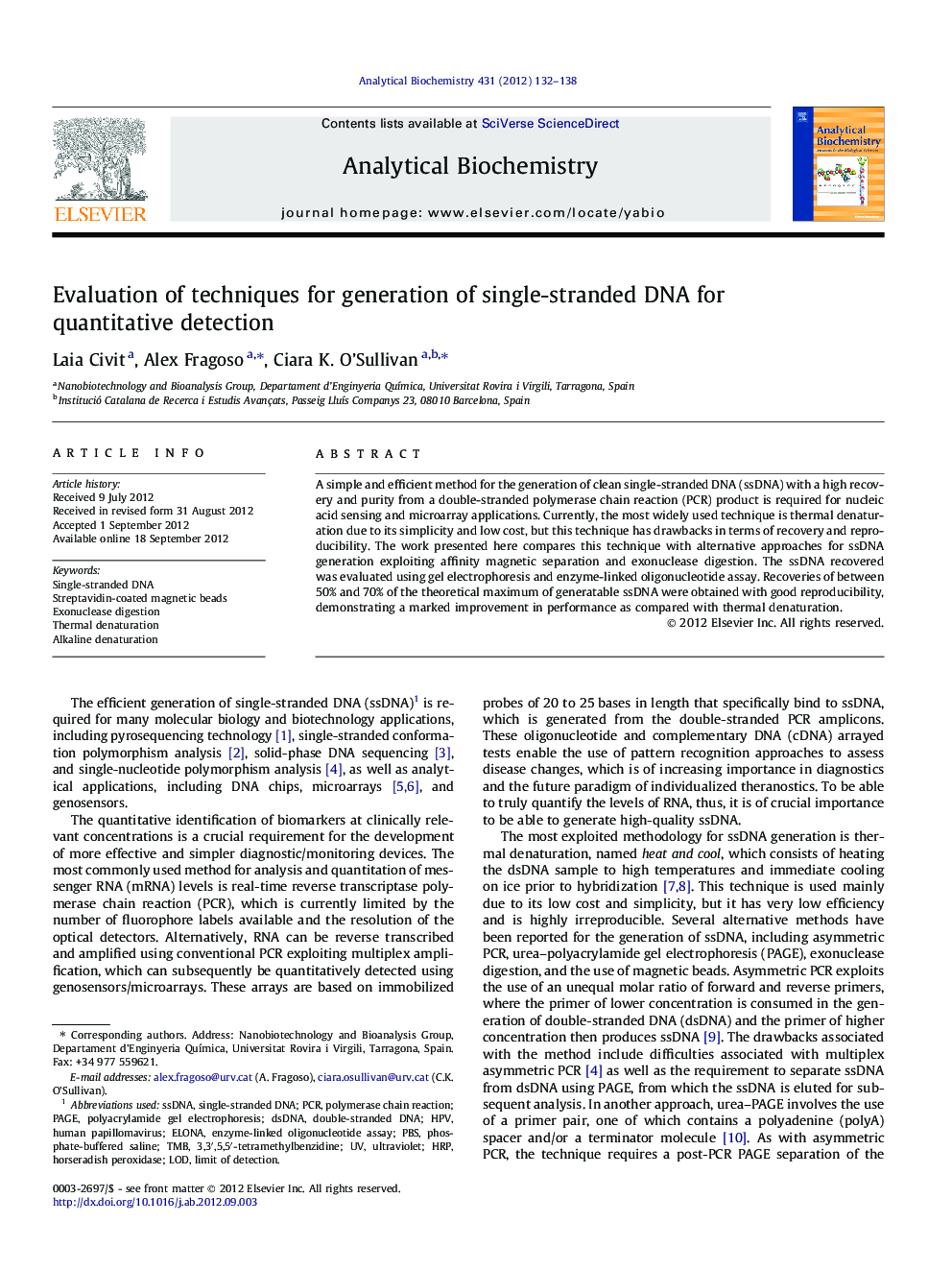| Article ID | Journal | Published Year | Pages | File Type |
|---|---|---|---|---|
| 10533258 | Analytical Biochemistry | 2012 | 7 Pages |
Abstract
A simple and efficient method for the generation of clean single-stranded DNA (ssDNA) with a high recovery and purity from a double-stranded polymerase chain reaction (PCR) product is required for nucleic acid sensing and microarray applications. Currently, the most widely used technique is thermal denaturation due to its simplicity and low cost, but this technique has drawbacks in terms of recovery and reproducibility. The work presented here compares this technique with alternative approaches for ssDNA generation exploiting affinity magnetic separation and exonuclease digestion. The ssDNA recovered was evaluated using gel electrophoresis and enzyme-linked oligonucleotide assay. Recoveries of between 50% and 70% of the theoretical maximum of generatable ssDNA were obtained with good reproducibility, demonstrating a marked improvement in performance as compared with thermal denaturation.
Related Topics
Physical Sciences and Engineering
Chemistry
Analytical Chemistry
Authors
Laia Civit, Alex Fragoso, Ciara K. O'Sullivan,
